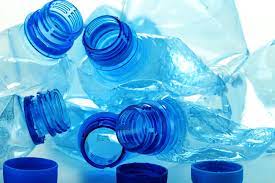Polyethylene Terephthalate:

Researchers have recently discovered a new deep-sea enzyme that can degrade Polyethylene Terephthalate (PET).
- Polyethylene Terephthalate (PET) is the most commonly used thermoplastic polymer in the world.
- It belongs to the family of polyesters.
- PET is produced by the polymerization of ethylene glycol and terephthalic acid.
- When heated together under the influence of chemical catalysts, ethylene glycol and terephthalic acid produce PET in the form of a molten, viscous mass that can be spun directly to fibres or solidified for later processing as plastic.
- It is highly flexible, colorless and semi-crystalline resin in its natural state.
- It shows good dimensional stability, resistance to impact, moisture, alcohols and solvents.
- It exhibits excellent electrical insulating properties.
- It is very lightweight, which reduces transportation costs.
- It has good gas (oxygen, carbon dioxide) and moisture barrier properties.
- It can be commercially recycled by thorough washing and re-melting, or by chemically breaking it down to its component materials to make new PET resin.
- It is widely used for packaging foods and beverages, especially convenience-sized soft drinks, juices and water.
- The polymer finds use in fabrics, and the textile industry.
- It is also used in films to mold parts for automotive, electronics, etc.




